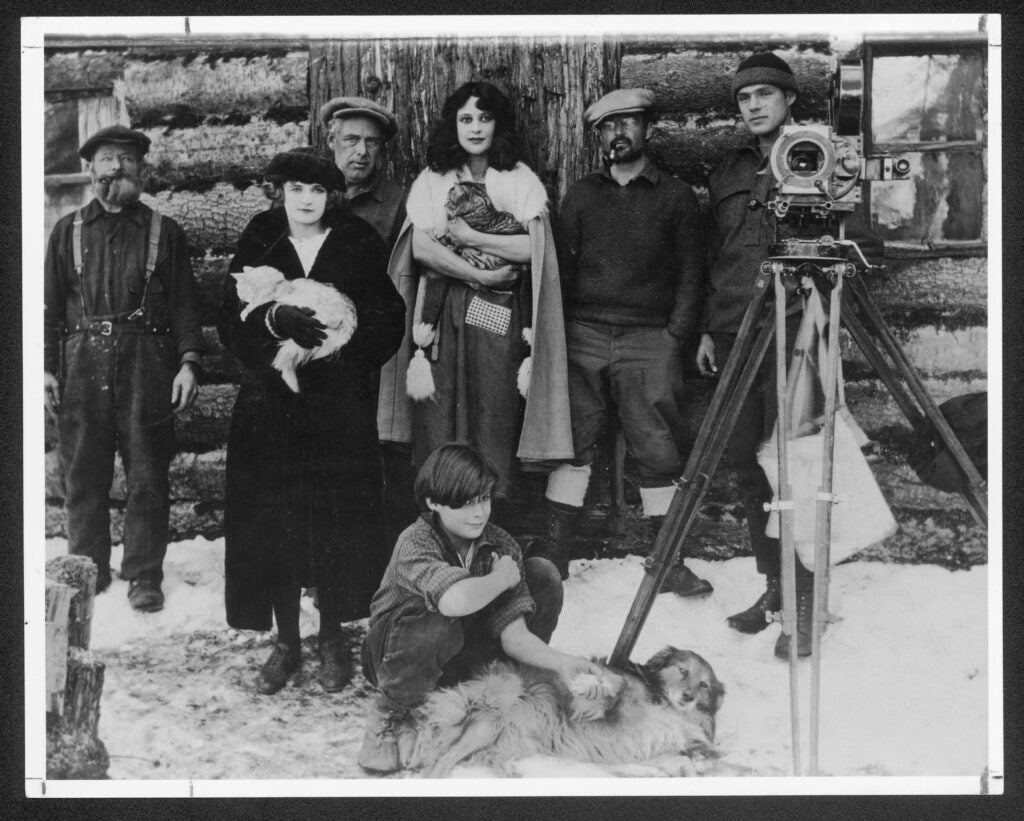
The Story Girl of Priest Lake: Nell Shipman’s Idaho Movieland, 1922-25, an exhibit dedicated to silent film entrepreneur Nell Shipman and her Idaho movie studio, will debut on Boise State Albertsons Library’s first floor this month. The exhibition will formally open to the public on October 29 at 5:30 PM, with a reception and screening of a Shipman short film and free refreshments provided.
Graduate student and public historian Kate Howk is curating the exhibit in coalition with Gwyn Hervochon of the Library’s Special Collections and Archives. The exhibition will feature archival movie reels, photographs, handwritten letters, and more that tell the story of Shipman’s Idaho film production venture.
Howk says Shipman’s movies immortalize the lush landscape surrounding Boise State students. “I think for a lot of Idaho students, it’s no secret that we live somewhere that’s beautiful, but we don’t always see it depicted on film.”
Shipman was an influential Canadian actor, writer and director who found success in Hollywood. She is renowned for independently producing Canada’s most successful silent film, “Back to God’s Country,” in 1919. She left Hollywood and came to Idaho to establish an independent production company at Priest Lake in Northern Idaho, where she endured financial setbacks, personal drama, and deadly winters.
Albertsons Library holds Shipman’s Idaho films, some of which were presumed lost until they were rediscovered by Boise State Professor Tom Trusky. “The fact that we have Nell’s stuff is a miracle,” Howk says. “There’s a lot more history in Idaho than I think we are given credit for.”
She also says students should seek opportunities to collaborate with the Archives and learn more about Idaho’s local film history. “I hope that students who walk by want to dip their toes into it, and if any are interested in doing this themselves, they should talk to the Archives.”
The exhibit’s archival materials, including Shipman’s known surviving films, are free to access in the Library’s Special Collections and Archives. The exhibit will be on display through the end of the year.